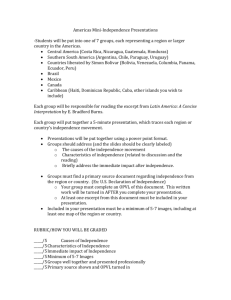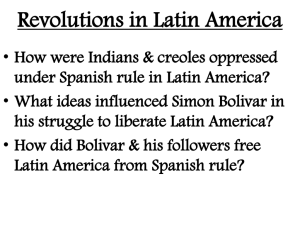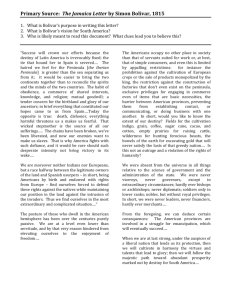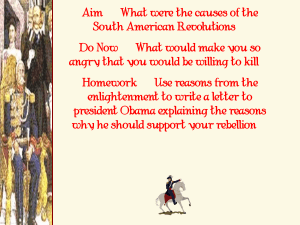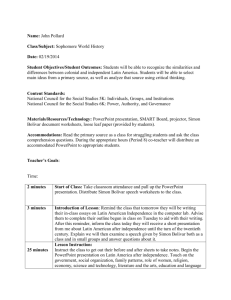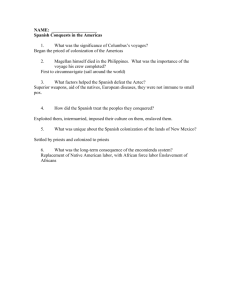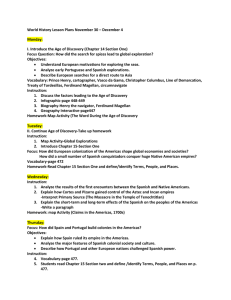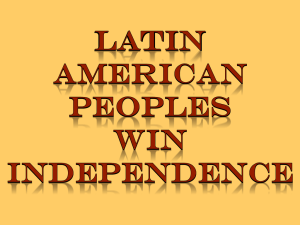Letter From Iraq
advertisement
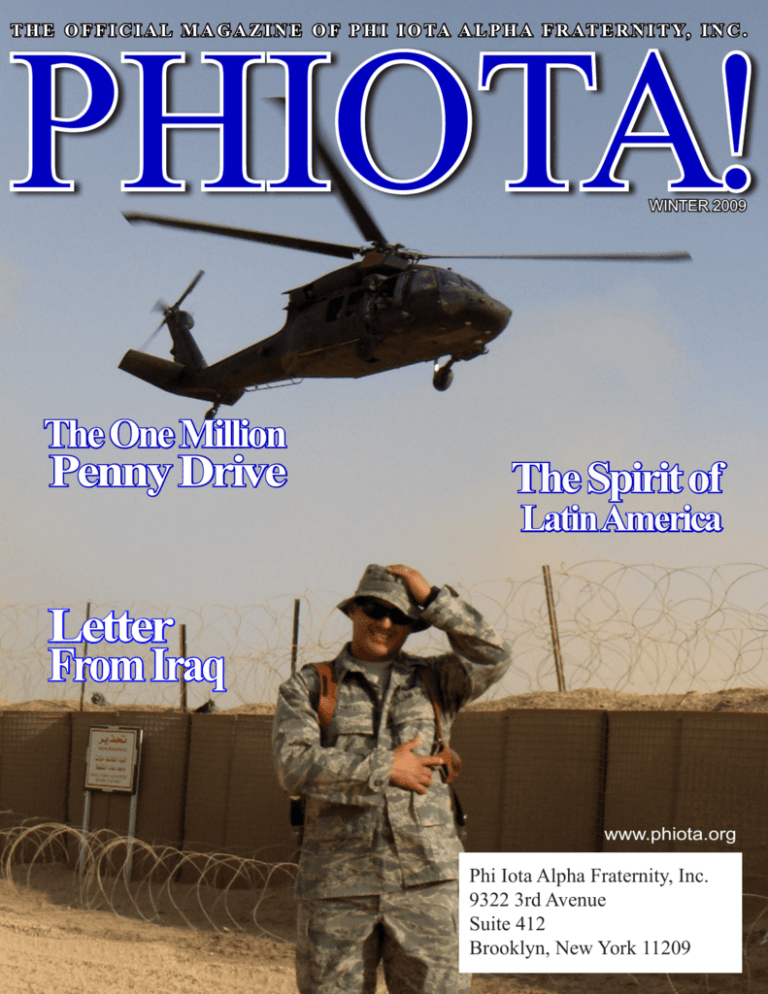
PHIOTA! T H E O F F I C I A L M A G A Z I N E O F P H I I O T A A L P H A F R A T E R N I T Y, I N C . WINTER 2009 The One Million Penny Drive The Spirit of Latin America Letter From Iraq www.phiota.org Phi Iota Alpha Fraternity, Inc. 9322 3rd Avenue Suite 412 Brooklyn, New York 11209 Winter 2009 Phiota! 1 PHI IOTA ALPHA FRATERNITY, INC CONVENTION BOSTON JULY 23-26 Contents PHIOTA! * Winter 2009 VOLUME 1 ISSUE 3 National Management Jason Nicolau Executive Director Edwin Berroa Director of Operations Omar Lopez Director of Marketing 2 Letter From Iraq 3 National Board 4 One Million Penny Drive 5 Feature Article -Spirit of Latin America 8 Northeast Province -Es Para Mas 10 Southeastern Province -Sparkplug of Greek Life -Inpacto Jose Pizarroso Director of Human Resources 12 Southern Province Francisco Lugo Director of Undergraduate Affairs -UTSA takes Awards Alberto Elvira Director of Information Technology 13 Midwest Province Phiota! Magazine 14 Western Province Steven L. Garza Editor in Chief Please send all letters, comments, and articles to: editor@phiota.org Deadline to submit for next issue: April 24, 2009 -Latino College Experience -Providing Helping Hand COVER IMAGE:Taken by Xavier Flores during his tour in Iraq. Do you want to have an image taken by you as the next cover? Submit your image to editor@phiota.org 15 Union Foundation The PHIOTA! is a quarterly professional magazine based on the ideals of the pillars of Fi Iota Alfa. It is the official publication of Phi iota Alpha Fraternity, Inc., the oldest existing latino fraternity, establish in December 26, 1931 at Troy, New York, with its roots beginning at 1898. All articles express the opinions of the authors, and not the fraternity, unless stated otherwise. Phi iota Alpha Fraternity, Inc., 9322 3rd Avenue, Suite 412, Brooklyn, New York 11209 Winter 2009 www.phiota.org Phiota! 1 LETTER FROM IRA Q and more importantly y ar lit mi a as Brothers, e w at th gs in nt get to see the great th aqi Army, are doing to get Ir e th It is unfortunate that you do d an e lic Po i aq Ir e th ), which include lp make a difference. he to s ief ch e lic the Iraqi Security Forces (ISF po d an ls ra . I have worked with gene this country back on its feet behind bars and well ys gu d ba me so t pu ve ha e ith the above mentioned w be an officer in the United to d ou Through the coordination w pr re mo lt fe r ve ne ve tell you that I ha ided continual support ov pr ve ha at simply below ground. I will th ls ai em me to you all that have send States Military and I owe it u all and the fraternity. yo ng ki an th of ay w my is and love. So this and of my beloved fraternity r te ma ma al my of a ili rib photos with memo my weapon than on on s nd ha my ve I have tried my best to take ha to er ef pr been but sometimes I just to FOB Kalsu from which to d da at all the places that I have gh Ba to aq Ir of tip n from the norther , but I still have more me ho me co to a camera. So far I have been y ad re ly ite fin I en fun but I am most de k you for your support and an th I sent my first photo. Its be n ai ag d an ch mu ry ve rs, I love you all than a month to go. Brothe hope you enjoy the photos. Xavier “Medico” Flores Spring 2001-Tau Chapter to st these photos on any peer po t no do se ea Pl u, yo k as P.S. - I humbly of reasons. (myspace/facebook) for many peer or social network National Board Saludos Hermanos, First and foremost I would like to wish everyone and happy and safe 2009. As we start a new year and new semester Phi Iota Alpha has chosen one (1) vendor to represent its unique paraphernalia on a National Level. That vendor is Collegiate Greek. COLLEGIATE GREEK is committed to serving all Greek Fraternities, Sororities both Nationals as well as Locals for now 14 years. From the traditional merchandise to many unique items which have not been seen before. Their commitment is now to Phiota members who take great pride in the letters which represent the organization. Collegiate Greek has a 72 hour turn around time and accepts all major credit cards. From this point forward ALL Phi Iota Alpha merchandise should be ordered from this exclusive vendor. Brothers from California to New York can now use (1) one vendor to order from crossing shirts to teekees. Your management staff has negotiated a 10% return for all Phiota merchandise ordered from this vendor. That means the more you purchase Phiota Gear from Collegiate Greek, the more the National Fraternity makes which can potencially cut back on increasing fees in the future due to this economy. The royalties will go for the day to day operations of the fraternity. To make the process easy for all of our members we have purchased the domain name of PHIOTAGEAR.COM, which will be redirected to our new and any future para vendors. Just go to WWW.PHIOTAGEAR.COM to order ALL of your PHIOTA PARAPHERNALIA and help your fraternity make money. This will be a long term fundraising project which will be carried long after our place in office for future member to take advantage of. New member committees are incouraged to order all of your candidates paraphernalia from www. PHIOTAGEAR.COM. Sincerely, Omar Lopez Director of Marketing Phi Iota Alpha Fraternity, Inc. 2 Phiota! Winter 2009 Winter 2009 Phiota! 3 THE ONE MIL LION PENNY DRIVE For the six consecutive year, the National Association of Latino Fraternal Organizations (NALFO) and its affiliate members unite in their “Quest for a Million Pennies” to benefit St.Jude Children’s Research Hospital for a 10 week period. Last year the participating organizations surpassed its goal of $10,000 and almost raised $13,000. We, Phi Iota Alpha Fraternity Inc, have a large fundraising goal for the “Quest for a Million Pennies” this year. The PHIOTA! Magazine would be coordinating the fundraising for the “Quest for a Million Pennies” for the fraternity. Chapters and Colonies whom would like to participate are ask to contact Steven Garza at editor@phiota.org. If you only want to make a donation? Please send checks or money orders to the following address: Phi Iota Alpha Fraternity, Inc. One UTSA Circle San Antonio, TX 78249 -Thank you for your support- 4 Phiota! Winter 2009 An Analysis on the Writings of Simon Bolivar and Jose Marti: The Jamaica Letter and Our America The history of Latin American Independence and the spirit of the revolutionary period are reflected and revealed in the writings of Simon Bolivar and Jose Marti’ in The Jamaica Letter and Our America. In The Jamaica Letter Bolivar discusses the passive role of the natives, analyzes foreign governments and champions unity among the Americas to resist further Spanish suppression. Similarly, in Our America, Marti’ discusses the passive role of the natives and pushes for movement, empowering the people of the Americas to embrace the ideals of freedom, liberty and equality and to question the state of oppression they are in, however, Marti’ champions non-violent methods unlike Bolivar’s revolutionary tactics. The writings of Bolivar and Marti’ reveal the emerging spirit and atmosphere of the Latin American Independence movement through their discussion of the influence of foreign governments and creole attitudes towards the Spanish and Natives, while also stressing pan-Americanism and unity to stand against the Spanish and other imperialist countries. Along with the writings and movements by key figures such as Bolivar and Marti’, changes in the international scene also affected the revolutionary spirit of Latin America along with the domestic changes taking place at the time as well. Domestically, Latin America was experiencing changes in relations between the center and the periphery, or the old and new world, as the Americas were becoming much stronger than Spain through its development of cities and metropolitan centers. These cities and centers provided a means for commerce and the ability to trade with other states besides Spain and a much more local identity starts to dominate as people in the Americas realize that they can in fact do very well without Spanish dependence. However, the independence cannot be insulated from international changes that were occurring politically in the United States of America and Europe. On the international scene a new system of change is established in Spain with the end of the House of Hapsburgs and the start of the House of Bourbons, which established the idea that there needs to be more administrative control of the New World because people have become By: Miguel Castro “too big for their boots” in the Americas. The imposed administrative control on the Americas leads to the development of resentment by the elite creole class in the Americas towards the Spanish and other ideas of freedom, liberty and equality that emerged from the American, Mexican and French Revolutions, inspired by the Enlightenment, served as catalysts for the revolutions that would take place in the New World. Marti’ calls for the people of the Americas to step forward as individuals with their own ideas and to think for themselves. Marti’ calls for a realization on behalf of the natives who are “unaware of those giants with seven-league boots who can crush him underfoot, or of the strife in the heavens between comets that go through the air asleep, gulping down worlds,” because he is aware of the imperialist and exploitative natures of the Spanish and the United States (Marti 11). The diction utilized by Marti’ such as “giants,” “crush,” and “gulping” alludes to the aforementioned natures of foreign governments towards the Americas as giants who seek to exploit the Americas for their own interests, crushing and gulping down the culture and history of these people. Marti emphasizes the need for action stating, “these are not the time for sleeping in a nightcap,” in other words, these are not the time for living in a state of content, dependent on the Spanish, “but with weapons for pillows, like the warriors of Juan de Castellanos: weapons of the mind, which conquer all others. Barricades of ideas are worth more than barricades of stones” (Marti 111). This is the major difference between Marti’ and Bolivar in that Marti’ advocated for non-violent methods for achieving Latin American independence, while Bolivar was more of a military, revolutionary activist. However, what Marti’ was emphasizing was the foundation of thoughts and questioning of the current state of the Americas that would fuel revolutionary movements like those of Bolivar against the Spanish. Marti’ criticizes the passive nature of the natives of the Americas and states, “we can no longer be a people of leaves, living in the air, our foliage heavy with blooms and crackling or humming at the whim of the sun’s caress, buffeted and tossed Winter 2009 Phiota! 5 by the storms” (Marti 112). Marti’s poetic style and natural metaphors highlight the importance of the land, which Marti’ uses to create an identity with the land that possesses strength against the Spanish because of its natural resources and ability to do well without the Spanish with regards to commerce. Bolivar also criticizes the passive nature of the natives and advocates for a more active role on behalf of the natives towards the Spanish. However, many argue that Bolivar champions for a more elitist approach towards the Americas and establishing a country based on its wealth and superiority as opposed to its politics and moral success. While seemingly elitist as a ceole in his approach towards the Americas, Bolivar is inclusive and relates with the natives through his consistent use of the “we” in his document, for example when he states, “we have been harassed by a conduce which has not only deprived us of our rights but has kept us in a sort of permanent infancy with regards to public affairs” (Bolivar 110). Bolivar is inclusive in the sense that as a creole elite he identifies himself with the natives of the Americas against the oppression of the Spanish. Bolivar was born into a very prominent family in Venezuela with a strong military background and despite his elite status he gave up his status for a more noble cause, and that cause was the independence of Latin America from foreign rule. Bolivar lost his parents during his childhood to tuberculosis and was educated by Simon Rodriguez and Andres Bello and was educated on the ideals of the enlightenment, and the French and American revolutions. Bolivar’s education influenced him greatly as he was studying in Europe during the crowning of Napolean as emperor and he solemnly swore that he will not rest his soul until Latin America is freed from Spanish rule, indicating that despite his seemingly elitist interests in Latin America, he truly cared about making the Americas an independent, unified, civilized entity that could flourish without the Spanish imperialism and exploitation. Bolivar discusses the atrocities committed by the Spanish against the Natives, setting himself apart from the homeland and sides with the Natives, developing a sense of hatred against the Spanish on behalf of the creoles. Bolivar makes use of an ambiguous “us” and “we,” which connotes a relationship or tie with the 6 Phiota! Winter 2009 Natives, underlying his seemingly elitist nature towards the people of the New World. If anything, like Marti’, Bolivar emphasizes for an active role on behalf of the Natives stating, they “have already seen the light, and it is not our desire to be thrust back into darkness”, because he believes the natives need to act for themselves and establish their independence after seeing the changes and ideals that are flourishing during the American, French and Mexican revolutions (Bolivar 109). In terms of attitudes towards the Spanish, Marti’ advocated for pan-Americanism or unity among Latin America to stand strong against imperialist and exploitative countries like Spain and the United States and, likewise, so did Bolivar. Marti’ states, “Nations that do not know each other should quickly become acquainted, as men who are to fight a common enemy,” emphasizing the need for the countries of Latin America to get to know each other, their cultures, their history and their struggles in order to stand strong against the Spanish and imperialist countries. At some point during his life, Marti’ lived in the United States as an active leader in the Cuban independence movement and he looked up to the ideals established by the founding fathers of America such as liberty, equality and the pursuit of happiness for all. During his exile in the U.S., Marti’ grew to admire James G. Blaine, especially during his first tenure as Secretary in the Garfield administration in 1881 because he praised his efforts to resolve border disputes among South American countries. However, eventually Marti saw Blaine’s role as a leader of the annexationists and expansionists, men who believed the U.S. should possess Cuba after getting rid of the Spanish. These men also believed that Latin America should be the market for the expanding industrial base of the U.S. The truth of this great nation was finally coming to light for Marti. Marti’s view towards the U.S. and the Spanish gradually changed as he became more involved and exposed to politics and his writings became informative warnings against the U.S. and the Spanish and were strongly opposed to imperialism. In his works stood out a profound respect for the dignity of man, manual labor, democracy, equality and justice. He felt that the average citizen was obliged to vote, to punish corruption and to be an independent thinker. Marti’ realized that there was too much imitation on behalf of the natives of Spanish government, culture and society and he promoted creation as the key to salvation and independence. Marti’ states that “creation” is the password of his generation and declares that even though “the wine is made from plantain, but even if it is sour, it is our wine,” making it clear that the people of the Americas need to make their own errors and develop their own system that works for them (Marti 117). This is different from Bolivar who took pieces from the social and governmental structures of the Spanish along with other foreign governments, which Marti’ argues is not true independence because Bolivar is continuing the same form of mimicking the Spanish and others and not developing a system that originates in the Americas. While Bolivar also champions unity, he questions the idea of having a fully unified Latin America. Bolivar believes that “it is a grandiose idea to think of consolidating the New World into a single nation, united by pacts into a single bond,” but “this is not possible. Actually, America is separated by climatic differences, geographic diversity, conflicting interests, and dissimilar characteristics” (Bolivar 118). Bolivar’s concept of unity revolves strongly around the concept of getting to know thy neighbor because it is only through an understanding of one’s neighboring countries of both their history, culture and society that one can work together in conjunction with another and stand in solidarity against oppression and imperialism. It is this type of union that Bolivar believes the people of the Americas must provide themselves with in order to expel the Spaniards and found a free government, “but such a union will come about through sensible planning and well-directed actions rather than by divine magic” because “America stands together because it is abandoned by all other nations,” emphasizing the geographically isolationist nature of the Americas and the aspect of solidarity that all nations of the Americas share, that of not only isolation, but oppression, slavery and exploitation (Bolivar 121). While Bolivar emphasizes unity of the Americas, he also denotes a creolization of his text through his ambiguous use of “we,” stating, “we were cut off and, as it were, removed from the world in relation to the science of government and administration of the state,” basically saying that the elite creoles were cut off from positions of power in elite institutions such as the military, the church, the government and commerce (Bolivar 112). Bolivar was the son of creole elites so he was subject to the creole dissatisfaction towards the Spanish and its systematic changes towards more administrative control over the Americas. However, from the beginning of The Jamaica Letter Bolivar makes it clear that he is speaking on behalf of his country, immediately establishing his connection with the natives and identifying himself with the land and the “tortures she has suffered from the time of her discovery until the present at the hands of her destroyers, the Spaniards,” excluding himself from the Spanish (Bolivar 103). Marti was opposed to the domination of the government by any one class or party and was thus against tyranny. He called for economic reforms to reduce the nation’s dependence on onecrop economies and warned against dependence on the U.S. economically. The inclusiveness of the title, Our America, reveals his identification with the natives of the land and reading in between the lines, Marti’s humble nature is revealed because he speaks of the creole elites in third person as “presumptuous man,” the bold man that excessively pushes forward imperialism and exploitation for his self-interests (Marti 112-113). Like Bolivar, Marti’ puts emphasis on the land and becoming one with the people, but unlike Bolivar who says the people of the Americas need to know the land to know what parts of other governments to take, Marti’ says that they need to know the land so that they can come up with their own government that originates in the country itself. For Marti’, “government must originate in the country. The spirit of the government must be that of the country” (Marti 113). Marti’ speaks with a tone of caution with regards to the Spanish and other foreign governments because he warns of “the day of the visit,” which is near when an imperialist nation will attempt to lay hands on the Americas, but if they stand strong and show themselves as one spirit and united entity then “it will remove its hands out of respect” for their apparent strength and unity (Marti 119). Continued on Page 11 Winter 2009 Phiota! 7 Northeastern Province Rensselaer Polytechnic Institute....Troy, NY SUNY at Stony Brook...................Stony Brook, NY SUNY at New Paltz.......................New Paltz, NY SUNY at Binghamton...................Binghamton, NY Hofstra University.........................Hempstead, NY Union College...............................Schenectady, NY Syracuse University.......................Syracuse, NY Columbia University.....................New York, NY Boston University..........................Boston, MA Harvard University........................Cambridge, MA New York University.....................New York, NY Rochester Institue of Technology..Rochester, NY Long Island University..................Brookville, NY U. of Masachusetts at Amherst......Amherst,MA Villanova University......................Villanova, PA Es Para Mas By: Joe Gonzalez On November 15th, the Villanova Phiotas invited 14 high school students from Delaware ASPIRA and the National Hispanic Institute (NHI) to participate in their first college admissions conference entitled the “Es Para Más” Conference. Sponsored through the Villanova Admissions Office and facilitated by Phiotas and NHI alumni, the conference was aimed at encouraging students to apply not only to Villanova, but any school that may have previously seemed out of reach. At the end of the Saturday conference, the participants felt confident and reluctant to leave their new friends. Jason Ferreira to Receive 2009 Humanitarium Award The Friends of Lead Free Children, a non-profit organization located in New York City, and it’s board of directors has selected to recognize Jason Ferreira for his humanitarian work both in New York and in the Dominican Republic. Jason will be receiving the award at the 2009 “Salute to the Unsung Heroes” dinner on Thursday, February 19, 2009 at the El Morocco Club in Upper Manhattan. Jason, a 1999 graduate of Syracuse University, is a vice president/general manager for Met Foodmarkets, located in New York. Jason has been honored for his work in Latino community events promoting business opportunities, partnerships, education and health awareness programs thru his involvement, there has been a positive impact in the communities he serves o both here and in the Dominican Republic. Additionally, as a member of Phi Iota Alpha Fraternity, Inc., Jason and his fellow fraternity members have developed and participated in many social assistance programs. Jason will be traveling this March to the Dominican Republic to assist in the distribution of pre-natal supplements to pregnant women, and also deliver support materials and foods to the school children of Haina. JOIN US IN RECOGNIZING JASON’S ACHIEVEMENTS! Thursday, February 19 El Morocco Club 3534 Broadway @ 145th Tickets $100 To support the: The Friends of Lead Free Children CALL 212-864-0915 TO RESERVE A TICKET 8 Phiota! Winter 2009 Winter 2009 Phiota! 9 Southeastern Province Southeastern Province Florida State University........................Tallahassee, FL Armstrong Atlantic State University.....Savannah, GA Impacto Sparkplug of Greek Life By: Raimar Rivera Since Fall 2008 the new Colony at Armstrong Atlantic State University has strived to be recognized on campus as a highly motivated and involved fraternity. With only eight other Greek lettered organizations, the Greek community was and still is relatively small and undeveloped in terms of inter-greek relations. This provided the AASU brothers with a unique opportunity to make a positive change. 10 Phiota! Winter 2009 The most notable being the first ever “AASU Greek Night” organized and hosted by the colony brothers, which showcased every Greek organization in their choice of stepping, marching, chanting, dancing or skits. The Phiota hyperactivity with coordinating and promoting successful events on campus even led to the coining of the phrase “sparkplugs of Greek Life” by campus staff. By: Angel Valladares The FSU Colony’s “Week of Phire” had an event on the political impact. With “Impacto” along with the campus’ Hispanic/Latino Student Union the importance and impact of the Latino vote in this year’s landmark elections was displayed. With participation from the official candidate campaigns of Barack Obama and John McCain, the event featured how each candidate was addressing Latino voting issues. The program also featured general election issues from healthcare and education to the economy and foreign policy. The discussion portion of the occasion involved dozens of students in a discussion about political issues facing all of us as college students. Continued From Page 7 In The Jamaica Letter Bolivar discusses and analyzes different forms of governments, emphasizing the geographical and international standing of Latin America and states that one cannot apply the laws of one country to another due to the differences in their cultural, political and historical past. Bolivar wants a government for the Americas that is built to last and he looks up to the British system for its stability, different branches and system of checks and balances. While Bolivar argues for republics he does not believe that all of Latin America can be under one republic, stating that it is impractical and impossible because the Americas “need the care of the paternal governments to heal the sores and wounds of despotism and war” (Bolivar 115). Bolivar’s tone towards the Americas may seem pessimistic but after the fall of La Gran Colombia (Colombia, Ecuador, Venezuela), which Bolivar helped gain its independence from Spain, due to differences between the nations and political and economic struggles that followed independence, it makes sense why Bolivar suggests that these countries need a paternal form of government that can look out after them. Overall, the key point that Bolivar stresses for the Americas is, “do not adopt the best system of government, but the one that is most likely to succeed” (Bolivar 118-119). This statement is key and applicable to even modern day imperialist countries that seek to spread and impose their ideals on others without truly having an understanding of the country itself, its culture, its people or its land, which is crucial in establishing a government. While different in their approaches and styles, ultimately Jose Marti’ and Simon Bolivar stressed the importance of pan-Americanism, the unification of Latin America, emphasizing the need to come to terms with the continents multi-racial identity and the importance of teaching thoroughly the history of the Americas for a better understanding of the peoples, the culture and the land for the establishment of better treatment and relationships. What works for one country does not necessarily work for another and it is through the understanding of each others’ similar and historical differences that countries can come to a self-realization to pursue what is in its best interest not only for itself, but for the world. Winter 2009 Phiota! 11 Southern Province Midwest Province University of North Texas.....................Denton, TX Baylor University..................................Waco, TX University of Texas...............................Austin, TX University of Texas at San Antonio......San Antonio, TX Texas A&M...........................................College Station, TX Texas State............................................San Marcos, TX University of Arkansas..........................Fayetteville, AR Ranked by Chapter GPA UTSA takes Awards By: Mark Melchor Last Fall semester the University of Texas at San Antonio of Phi Iota Alpha obtain the Highest G.P.A of All Greek Life out of 26 total groups, with a 3.044. On November 24, the chapter receive many awards and recognitions at the Greek Life Awards. The chapter receive a total of seven gold, silver and bronze medals for their achievements in scholarship, involvement, education, and philanthropy. The chapter was recognize for “Most Money Donated” in the Multicultural Greek Council (MGC) in Spring 2008, for donating $2600 in scholarships. Brother Steven Garza receive the “Greek Man of the Year” award for a second time in three years for his involvement in the community and the university. He was also presented a gavel and swear in as the next MGC President for 2009. The chapter appreciates the help and support from the undergrads and alumni. Without their support the chapter could not achieve its accomplishments. 12 Phiota! Winter 2009 Chapter GPA Phi Iota Alpha MGC 3.044 Delta Sigma Theta MGC 3.010 Sigma Lambda Alpha MGC 2.953 Phi Gamma Delta IFC 2.859 * Top 4-UTSA Greek Grade Report Fall 2008 Michigan State University................Lansing, MI Lewis University...............................Romeoville, IL Ohio State.........................................Columbus, OH Ball State...........................................Muncie, IN Council Phiotas Enhancing the College Experience By: Carlos Martinez The 1st Annual Latino College Experience took place on December 2. This was done in conjunction with the Hispanic Center of Western Michigan and consisted of bringing about sixty students from Grand Rapids area high schools. As we all know, Latino college enrollment and retention is shamefully low and higher education is one of the key steps to ensure we as a community are able to better our overall conditions. During their college visit the students were able to go to various college and department visits. Amongst these were the College of Human Medicine, who had their Latino Medical Student Association give the youth presentations and a tour of their building. They were also given presentations based on higher education and Latino studies as well as college life by faculty and students from the Chicano/Latino Studies department and their mentoring program. Another aspect of their day included a visit and tour of our Botanical Gardens. Finally, the experience concluded with various speakers from Admissions, the High School Equivalency Program (HEP), the College Assistance Migrant Program (CAMP), the College of Natural Science, and the Residential College in Arts and Humanities who showed the students ways in which they can actually attain a higher education. The largest highlight however, was the on-site acceptance of student Nancy Gomez who brought her application and was admitted on the spot by the representative from admissions. Phi Chapter really appreciates all the support from our surrounding communities who helped us put these events together because as Don Simon Bolivar said; “En la union esta la fuerza.” Winter 2009 Phiota! 13 Western Province San Diego State University..................................San Diego, CA California State University: Dominguez Hills.....Dominguez Hills, CA More than 75 years ago a remarkable group of university men who shared the ideals of enlightenment and Latino brotherhood established a national organization called Phi Iota Alpha Fraternity. At that time, the fraternity worked to educate and advance their fellow Latinos and countrymen across the country. In recent years the organization felt the need to create a new organization to live the mission that the fraternity espoused and to benefit a much larger scope of the Latino population; Therefore the creation of The Union Foundation. Providing a helping hand during the holidays By:Julian Reyes Los Angeles County has approximately 90,000 people that are homeless – the largest homeless population in the United States – with a large concentration of them residing in the Skid Row section of downtown Los Angeles. Several shelters service the area, including Volunteers of America, Union Rescue Mission, Downtown Women’s Center, and the Midnight Mission. With Thanksgiving around the corner, the Southern California Alumni Association wanted to help those in need of a meal. On the morning of Sunday November 23, brothers from the Southern California Region set up shop at California State University Dominguez Hills to prepare 250 meals for our Feed. The brothers then took the short drive north – roughly 20 miles – to 5th Street and San Pedro St to distribute the meals. In less than 15 minutes, all the bags were given out. “The quickness in which the food is distributed just goes to show you how little help the homeless community actually receives in Los Angeles. It is definitely a humbling experience to see the level of poverty they face day in and day out and that provides our region with great motivation to go out there and help them in whatever way we can” says Hiram “Guali Caona” Lucena (Mu Chpater Alumni). In 2007, the California region organized a Greek 14 Phiota! Winter 2009 Unity Feed the Homeless Event with The Midnight Mission in Skid Row. We raised $1300 to fund their Mobile Kitchen Program (serving 400+ homeless outside of skid row) as well as served in the soup kitchen to serve over 600 homeless with the help of 9 different Greek organizations. Since its founding in Spring 2000, the Alpha Epsilon Chapter of Phi Iota Alpha Fraternity, Inc. has held a Feed-The-Homeless community service event several times a year, delivering more than 5,000 meals to date. The foundation is an initiative designed to impact the lives of Latino communities throughout the world in the areas of education, economic development, and social progress. The Union Foundation is a private, charitable non-profit organization. The Foundation was created in order to: *Provide scholarships and grants to Latino youths to enhance their educational and career opportunities. *Support community programs and other 501(c)(3) tax exempt organizations that support civic empowerment and educational improvement within the Latino community. *To increase awareness of Latino issues to the greater philanthropic community covering issues such as, but not limited to, educational achievement, civil rights, state of the workforce, and overall community health. *To engage in other activities related to supporting and educating the public concerning Latino issues. For more information or to donate, visit the following website: www.ufoundation.org “In Union our Community has a Future” Winter 2009 Phiota! 15 Phi Iota Alpha Fraternity, Inc. The Oldest Existing Latino Fraternity-Est. 1931 THE ONE MIL LION PENNY DRIVE ALL PROCEEDS WILL GO TO: www.phiota.org | www.nalfo.org -SEE INSIDE FOR MORE DETAILS ON HOW TO PARTICIPATE-
